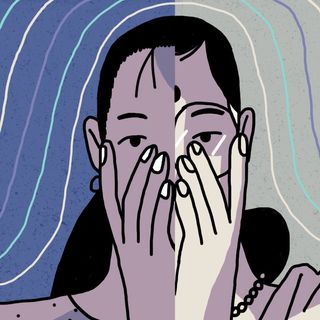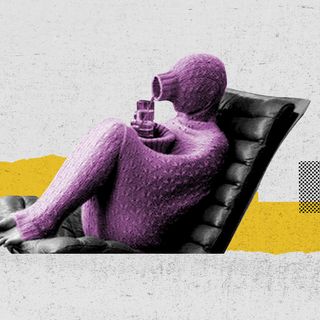That feeling when you’re just about to fall asleep, but suddenly experience a jolt actually has a name: hypnogogic jerks, commonly known as sleep starts or hypnic jerks.
Research suggests that at least 60% to 70% of people experience these sleep starts. Sometimes, they go unnoticed because the jerks don’t cause a person to wake up. The jerks occur in the transitional period between wakefulness and sleep, and are involuntary actions that resemble a jump one may experience as a result of being startled or scared.
These jerks may be caused by sound, light or other external stimuli, and could be accompanied by hallucinations and dreams too, write Joseph Castro and Laura Geggel for Live Science.
Although experts don’t know the exact reason for this occurrence, some theories link it to an ancient primate reflex at the onset of sleep. The theory posits that the brain is misinterpreting the body’s state of relaxation as a sign that the sleeping primate is falling off a tree and causes the muscles to produce a quick reaction, add Castro and Geggel.
This evolutionary action, writes Jason Ellis, professor of Sleep Science, Northumbria University, Newcastle, serves “at least two important but interrelated functions, the former of which is still relevant today,” for The Conversation.
First, the sudden jerks enable us to check our environment one last time before falling asleep as if to check if it is really safe to fall asleep. In addition to that, it helps us check the stability of the position of our bodies before we sleep, “especially if we started to fall asleep in a tree. The jerk would allow us to test our footing before unconsciousness set in,” he adds.
Related on The Swaddle:
All You Need to Know About Children’s Sleep Disturbances
Researchers have also identified caffeine, vigorous exercise, or anxiety as possible triggers of this involuntary action. While chemicals in these products may prevent the brain from reaching deep sleep, and instead startle it from time to time, anxiety keeps the brain active even as the muscles are trying to relax, causing the brain to send out “alert signals” as jerks.
According to some studies, magnesium, calcium and/or iron deficiencies also increase the possibility to experiencing hypnic jerks. How these deficiencies are directly related to the body producing this involuntary action is still under study and theories are still evolving.




